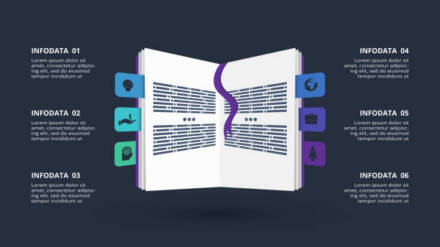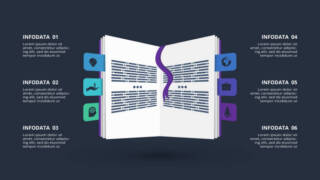Retirement used to be something people thought about only when their hair turned silver and they finally had time to slow down. That’s no longer the case. Today, planning for later life starts much earlier, and for many it’s become a kind of side project that runs in parallel with work and family life. The shift has less to do with fear and more to do with control. People want to decide not just when they retire, but how. And with medical costs, shifting policies, and longer lifespans, the way forward isn’t as straightforward as it once was.
The Changing Landscape Of Retirement
In past decades, the standard script went something like this: work until your mid-sixties, collect a pension, add Social Security, and maybe dip into savings. But pensions have largely disappeared, Social Security faces ongoing questions, and the stock market can’t be relied upon to deliver steady growth in a neat, predictable line. These changes have pushed people to be far more active in building their own safety nets. The 401(k) replaced the pension, and now individuals carry the responsibility of investing wisely, adjusting for inflation, and preparing for unexpected costs.
What makes this landscape even more complex is the way people live and work today. The gig economy, remote work, and second careers mean income streams look very different than they once did. For some, that’s an opportunity to keep working longer on their own terms, blending income with purpose. For others, it’s a challenge, as irregular earnings can complicate long-term planning. Either way, the old retirement model doesn’t quite fit anymore, and that realization has made planning less about a distant finish line and more about adaptability.
The Human Side Of Advice
<iframe src=”https://www.google.com/maps/embed?pb=!1m18!1m12!1m3!1d3320.354535764285!2d-111.88811229999999!3d33.673882899999995!2m3!1f0!2f0!3f0!3m2!1i1024!2i768!4f13.1!3m3!1m2!1s0x872b71b1153000d3%3A0x22433633fd6cb2b5!2sSenior%20Advisors!5e0!3m2!1sen!2sus!4v1757696208249!5m2!1sen!2sus” width=”600″ height=”450″ style=”border:0;” allowfullscreen=”” loading=”lazy” referrerpolicy=”no-referrer-when-downgrade”></iframe>
Money alone doesn’t determine how well retirement goes. Guidance matters, and the right advisor can make a world of difference. But trust is everything. The financial industry has had its share of missteps, leaving people skeptical. That’s why personal connection and transparency have become non-negotiable when choosing someone to help navigate decisions. Whether it’s Boston or Scottsdale medicare advisors and anywhere in between, finding someone you trust can set the tone for confidence instead of confusion. The wrong advisor might leave you with cookie-cutter plans that don’t reflect your reality. The right one listens, adapts, and knows when to say, “This might not be the best option for you.”
That human connection is especially important during transitions—when you’re not quite sure if you can retire early, or if working part-time could stretch your savings. Advisors who bring empathy to the table do more than manage accounts; they help you feel secure in your choices. Retirement isn’t just a spreadsheet, after all. It’s about quality of life, and the people guiding you should understand that.
Rising Healthcare Costs And Options
One of the biggest variables in retirement planning is health. Longer lifespans mean more years of care, and the price tag can be staggering. Even with insurance, out-of-pocket costs can add up quickly, and not all policies cover the same ground. People often underestimate how much this matters until they’re faced with it directly. Planning ahead means looking carefully at healthcare options, from Medicare supplements to long-term care insurance. These aren’t thrilling topics, but skipping them is a mistake that can drain even the most carefully built nest egg.
The conversation about healthcare has also expanded to include lifestyle choices. Preventative care, fitness, and diet all play into how long you stay healthy and how much support you’ll need down the line. People are beginning to see healthcare planning as part of their retirement plan, not something separate. That shift reflects a more realistic view of aging: living longer is great, but it also means more time to manage your body, mind, and resources.
The Psychology Of Planning
It’s easy to treat retirement planning like a numbers game, but there’s a deeply human side to it that doesn’t get enough attention. How people imagine their later years influences the way they prepare. Some think of retirement as a reward for years of work, a chance to relax and finally do what they want. Others see it as a reinvention, where they can start new projects or even new careers. The difference shapes the strategies they choose.
Anxiety can creep in here too. With constant headlines about market volatility and healthcare debates, some people freeze rather than make decisions. That paralysis can be just as damaging as poor planning. The healthiest approach often involves breaking the process into steps, making adjustments as you go, and accepting that you won’t have total control over every factor. There’s a balance between being realistic and not letting fear steer the ship.
Generational Shifts In Thinking
Baby boomers approached retirement in one way, Gen X in another, and millennials are rewriting the rules entirely. Younger generations often don’t see retirement as a single block of time at the end of life. Instead, they’re interested in mini-retirements or flexible careers that allow them to step in and out of work over time. They’re more likely to build side businesses, invest in real estate, or seek financial independence long before traditional retirement age. That flexibility comes with risks, but it also shows how the concept of retirement continues to evolve.
What’s consistent across generations is the desire for freedom—freedom from financial stress, freedom to spend time with family, freedom to choose what daily life looks like. The way each generation pursues that goal varies, but the common thread is personal agency. Retirement isn’t about waiting for the right age anymore. It’s about building options that let you shape your future.
The Role Of Community And Connection
As much as retirement planning focuses on money, one of the biggest predictors of happiness in later life is community. People who maintain strong relationships and a sense of belonging tend to thrive more than those who focus solely on financial independence. Planning for retirement, then, isn’t just about accounts and assets; it’s about where you live, who you surround yourself with, and what activities bring meaning.
That perspective changes the conversation. Instead of seeing retirement as an end, people are increasingly treating it as a stage of life worth investing in emotionally and socially. From volunteer work to mentorship, from moving closer to family to joining new communities, these decisions can be just as important as investment choices. The future isn’t only shaped by what you save, but also by what you give your time and energy to.
Wrapping Up
Retirement isn’t something that happens to people anymore. It’s something they create. With so many moving parts—from financial markets to healthcare and lifestyle choices—the best approach blends foresight with flexibility. The old picture of retirement as a final act doesn’t quite work in today’s world, and that’s a good thing. It means later life can be more personalized, more active, and more fulfilling than ever before. The challenge is simply to step into planning early, treat it as ongoing, and make choices that feel right not just on paper but in daily life. In the end, the real success of retirement planning is measured less in dollars and more in the freedom to live it well.






